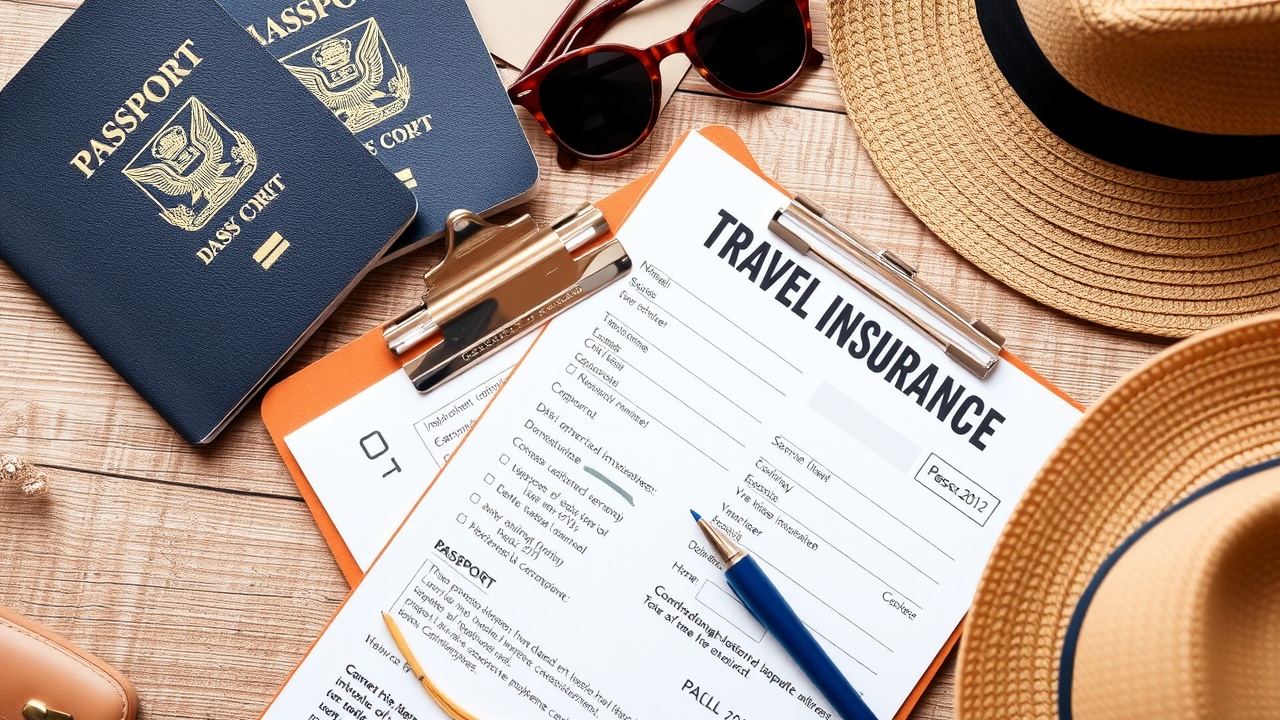
Although it may increase the cost of your vacation, travel insurance may be essential if things don't work out as expected
Travel insurance can provide travelers with crucial peace of mind, even though some people may view it as an unnecessary expense that isn't worth it. An insurance policy serves as a reminder that you will always have trip protection.
Here's all the information you need to determine whether travel insurance is actually worth it.
For what reason is travel insurance crucial?
Travel insurance is crucial because it guards against unforeseen expenses during a vacation or trip.
Since you could save thousands of pounds in an emergency, getting travel insurance is usually a wise decision, even if it costs a little up front.
What can be covered by travel insurance?
Issues including medical costs, delayed or canceled trips, and lost or stolen luggage are all covered by travel insurance. Vacationers can add on optional extras, like device protection, usually at an extra cost.
Since different insurance companies will have different policies, be sure to review the exclusions listed in your policy.
In certain situations, your travel insurance will not cover you.
For example, travel insurance typically does not cover natural disasters like hurricanes, floods, or storms. However, for an additional cost, some providers will provide this kind of coverage.
Head of Public Affairs at Holiday Extras Seamus McCauley says, "It's important to have read the policy details before purchasing the insurance product for holidaymakers traveling to a destination where natural disasters could be a possibility."
Travel insurance may not cover you in certain minor situations, though some people may not be aware of this.
"Your insurance probably won't pay for you if you decide against going on vacation or if you miss a flight. "Most policies won't protect you if there's alcohol involved if you're having a few glasses of wine and an incident happens," cautions Greg Wilson, CEO of Quotezone.
Before you leave, always make sure to check with the Foreign Office. "Your policy won't cover you if they advise you not to travel to a certain area and you go ahead anyway," he continues.
Is travel insurance worthwhile and when is it necessary?
Although it is probably a good idea, not all trips require travel insurance. However, in some cases, it might be worthwhile to purchase travel insurance.
Unexpected events can be a risk when traveling overseas, particularly if you have paid for your trip in advance. Because of this, travel insurance guards against cancellations due to circumstances beyond your control.
Your travel insurance policy might not cover certain activities, so if you're an adventurer, you might need to get specialized coverage.
Activities like hiking, bungee jumping, scuba diving, and skiing have their own risks, especially in more isolated areas. This coverage can help in the event of an injury.
Regrettably, chaos persists worldwide, so in nations with unstable political or economic conditions, travel insurance is probably worthwhile in case you need to abruptly depart once you arrive or have to change your plans.
Traveling with a camera to record the most memorable moments of their trip is something that many people will do, but it should be protected along with other valuable items. Because it can cover theft or loss, travel insurance is advantageous for those traveling with valuables.
Lastly, travel insurance may be a crucial tool for preventing unforeseen expenses along the way if you intend to visit several locations. Travel insurance is worth the money if you do miss your connection because flight cancellations and delays, in particular, can be expensive.
What is the cost of travel insurance?
A single-trip policy typically costs £22, according to data from Go and The Idol. Compare the shows. This increases to 60 for those who purchase yearly multi-trip insurance. Insurance for backpackers can be even more expensive, averaging 192.
A number of variables, including the destination, the duration of your trip, and any pre-existing medical conditions, will affect the cost of your travel insurance. All of these will affect the cost of your policy, says Ceri McMillan, a Go travel specialist. In contrast.
Additionally, Greg Wilson says, "You should make sure you're not already covered because some bank products and even home insurance policies have travel insurance included, so you might be able to find some savings."
Is it worthwhile to spend more on travel insurance?
Some people may question if the excessa set sum you must pay toward a claim before the insurer pays the remaining balanceis worth it with regard to travel insurance.
There is frequently a decision to be made when purchasing travel insurance. You have the option of paying a lower premium with excess claims fees or a higher premium with zero excess.
Selecting an excess travel insurance policy can save the policyholder money up front, but it may also result in a smaller payout in the event that you need to file a claim.
For instance, on low-risk trips with little risk or in situations where minor claims against the policy are unlikely, excess can be beneficial. But there is one important thing to keep in mind when considering excess.
"You should avoid choosing a higher excess than you can afford. Your insurer will only pay out 750 if you file a claim for £1,000 and your excess is £250, according to Ceri McMillan.
If I have a GHIC or EHIC, do I still need travel insurance?
The Global Health Insurance Card (GHIC) was formerly known as the European Health Insurance Card, or EHIC, prior to Brexit. It can make it easier for visitors to the EU to get access to public healthcare. It does not, however, take the place of travel insurance.
Andy McDonald, Underwriting Manager at Norton Insurance Brokers, explains that since GHIC and EHIC cards only cover treatment in public hospitals, some vacationers may end up being taken to a private hospital and then facing thousands of pounds in medical bills.
"You need more protection when traveling overseas than just for medical emergencies. "You will be protected if your flight is delayed or cancelled, if your trip is interrupted, if your luggage is lost or damaged, if your belongings are stolen, and of course, if you have more coverage for medical emergencies than what a basic GHIC or EHIC card offers," he asserts.
How do I make a claim on my travel insurance?
Before filing a claim on your travel insurance, go over the terms of your policy.
After that, you ought to collect the necessary proof and records that could bolster your assertion. Information like booking references, receipts, cancellation proof, or police reports in the event of theft or loss could be helpful.
In the event of a medical emergency, many travel insurance companies encourage their policyholders to get in touch with them as soon as possible after problems or incidents. Note the helpline provided by your insurance company to aid in the successful filing of a claim.
Next, fill out a claim form with pertinent and accurate information. A claim's chances of being denied will be reduced with timely submission.
It might take some time to process a claim for travel insurance, but being proactive is advised. Be ready to provide more information in the event of a follow-up, as some insurers might need it.
At what time of year is it best to purchase travel insurance?
Once you have made travel arrangements, it is worthwhile to purchase travel insurance. Purchasing a travel insurance policy as soon as possible after booking a trip will provide you with protection against any unforeseen circumstances that might require you to alter your plans or cancel your vacation entirely.
Delaying the purchase of travel insurance is generally not a good idea. This is due to the fact that, if you are buying single trip travel insurance, the coverage will begin on the day of purchase and end on the day you return home. This implies that your policy may cover unanticipated events that occur prior to a trip, such as medical emergencies, accidents, a death in the family, or a travel provider filing for bankruptcy.
"If you don't have insurance, you might not receive your money back unless your reservation provider provides free cancellation. "You have that additional layer of protection from the beginning when you have a policy secured beforehand," says Andy McDonald.
Even though an annual, multi-trip policy might seem pricey at first, it might be appropriate for people who travel frequently throughout the year.
"This kind of policy makes sure you're protected from the time you book and covers all of your travels for the year, including vacations to the UK. It saves you the trouble of arranging insurance each time you travel and turns out to be more affordable than purchasing separate policies," McDonald continues.














Leave a comment on: Can you afford to buy travel insurance?